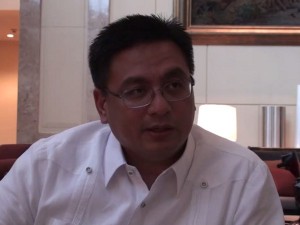MANILA, Philippines—The Bureau of Customs’ five biggest revenue collection districts—Manila International Container Port, ports of Manila, Batangas and Limay (Bataan), and the Ninoy Aquino International Airport—collected a total of P218.12 billion in revenues during the first 10 months of the year, according to the latest report of the BOC’s Statistical Analysis Division.
However, their combined collections were still P22.98 billion short of their January to October goal of P241.1 billion, said the same report, a copy of which was given to the Philippine Daily Inquirer.
The MICP’s revenues totaled P67.27 billion, P6.13 billion off its target of P73.4 billion, while the Port of Manila registered revenues of P47.7 billion, P7.39 billion short of its targeted P55.1 billlion.
The Batangas and Limay ports had collections of P51.8 billion and P30.8 billion, respectively, which were P6 billion and P2.48 billion off their targets.
The Naia’s collections for the same period totaled P20.4 billion, just P1.11 billion short of its P21.5-billion goal.
Other ports with collection deficits were the following: San Fernando, La Union, P449 million; Aparri, Cagayan, P182 million; Legazpi City, P31 million; Surigao City, P4 million; Tacloban City, P2 million, and Zamboanga City, P1 million.
On the other hand, the following ports reached their 10-month targets: Subic Freeport in Zambales, with a collection surplus of P4 billion; Cebu, P1.11 billion; Cagayan de Oro, P920 million; Clark International Airport, P585 million; Davao City, P290 million; and Iloilo City, P274 million.
From January to October, the Department of Finance-attached agency’s revenues totaled P252.84 billion, P87.16 billion off its 2013 target of P340 billion.
The amount was also still short of what Customs Commissioner Ruffy Biazon called the bureau’s “internal motivational milestone mark” of P300 billion.
The former Muntinlupa City legislator had admitted that the bureau would most likely miss its annual collection target, citing the slowdown of imports, globalization and trade liberalization, among other factors.
Biazon also blamed the continuing corruption in the BOC and the “jitters caused by swift changes at the agency” for the low collections.
He said, however, that “despite the personnel changes that have occurred of late, we managed to keep our collections on the positive level.”
The Bureau of Customs has undergone a drastic revamp.
In September, Malacañang appointed new deputy commissioners Agaton Uvero, Primo Aguas, Ma. Edita Tan, Myrna Chua, and former AFP chief of staff Jessie Dellosa.
Then under the Customs Reform Project, 27 top BOC officials, including 17 district collectors, were moved from their posts to the newly created Customs Policy Research Office at the Department of Finance head office on Roxas Boulevard, Manila.
The move caused controversy when some collectors sued the BOC to be able to stay in their posts. Eventually all the collectors vacated their positions, with some of them opting for early retirement.
